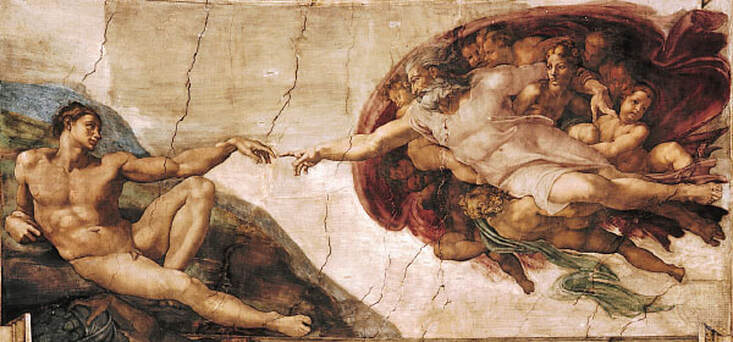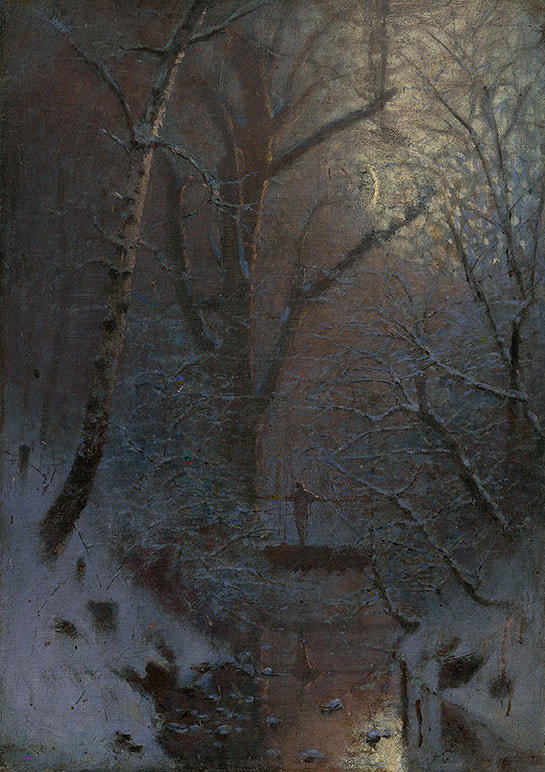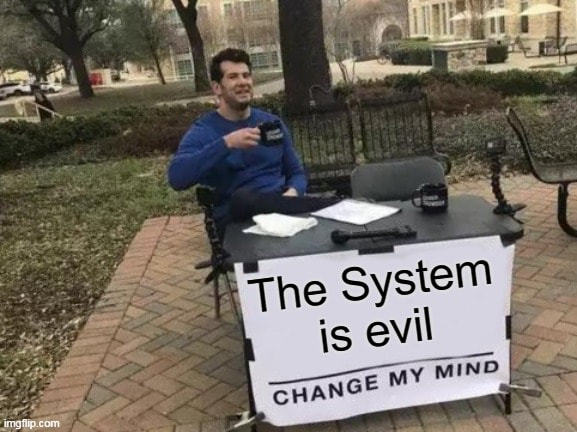Anti-society strives to imprison every single human being in the System. As is the case in an actual prison, anti-society aims to atomize and isolate individuals as much as possible. Though it allows its prisoners to mingle and "socialize" a little in the prison yard, this mingling and socializing is only permitted under heavy surveillance and strict controls, thereby nullifying most authentic or potentially authentic forms of socializing. In essence, anti-society seeks to create a world in which everyone is alone with everyone else. A world in which a person becomes an isolated thing disconnected from every other isolated thing.
Recognizing the anti-society currents in the System is a big push factor for system distancing - the spiritual act of freeing and separating oneself the evil inherent in the System. However, this act of freeing and separating also contains an atomizing and isolating potential. Individuals who succeed in spiritually freeing and separating themselves from the slavery of the System might find themselves in circumstances where they feel they are or actually are very much alone in the world. In circumstances such as these, the alone with everyone else of anti-society may appear preferable to the alone with no one of system distancing.
We are, after all, social creatures. Moreover, we are beings and as such we seek to communicate with and "be" in the presence of other beings.
This is why I believe system distancing must be paired with some form of community nurturing or building. Once individuals commit to distancing themselves from the system, they must also commit to creating some form of community. For system distancing to truly work, the communities must remain small at first - perhaps no larger than a few trusted friendships or a close-knit family or a combination of both. These communities must be made up of individuals who value the primacy of the spiritual, are all on the side of God's creation, and are all willing to work together and support each other. I imagine these sorts of communities will be as varied as the individuals who comprise them, but I believe they are absolutely necessary. Without them, most people who commit to system distancing may find themselves in positions of unbearable isolation. Of course some individuals will be perfectly successful going it alone, but the vast majority will not. Hence, community is key.
I'm still picking away at Berdyaev's Slavery and Freedom in my spare time. During my reading today I came across an interesting passage that lends some credence to what I have described above (slightly edited by me):
Man lives in an evil servile dependence upon society and he himself creates that dependence by hypostatizing society and creating myths about it. Social influences and suggestions distort religious beliefs, moral values and man's very grasp of truth. But there is a reality which lies deeper than that to which the name of society is given - the reality of the relations which exist among people within the society, the reality of the degrees of community existing among men. It is this that makes a sociology of knowledge necessary.
In the process of cognition, man acts not as an isolated being but as a social being. The apprehension of truth has a social character and, therefore, the process of cognition depends on the form taken by the communion which exists among men, upon the degree of their community. Logical universal validity in the apprehension of truth has a social character. It is a problem of communicability. But the dependence of the acquisition of knowledge upon the social relations of men is in a much deeper sense dependence upon the spiritual state of men. The social relations which men have with one another, have their effect upon the process of acquiring knowledge and indicate degrees in the spiritual isolation or spiritual community of men.





 RSS Feed
RSS Feed

